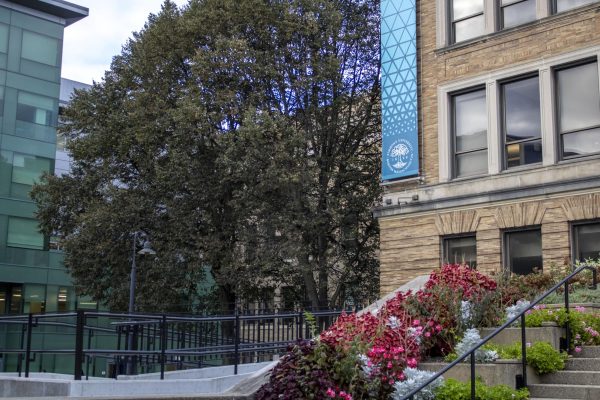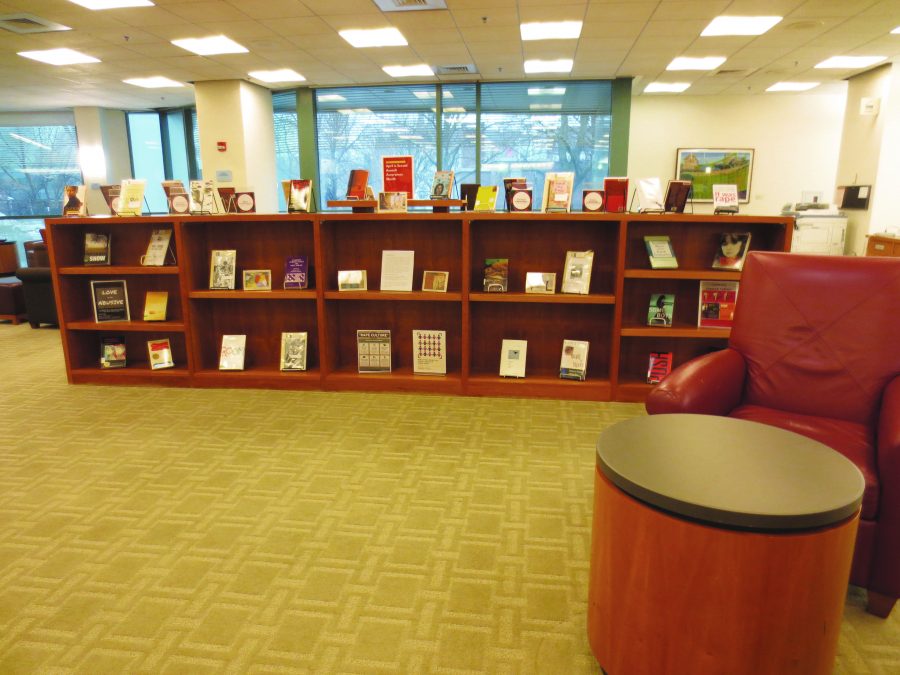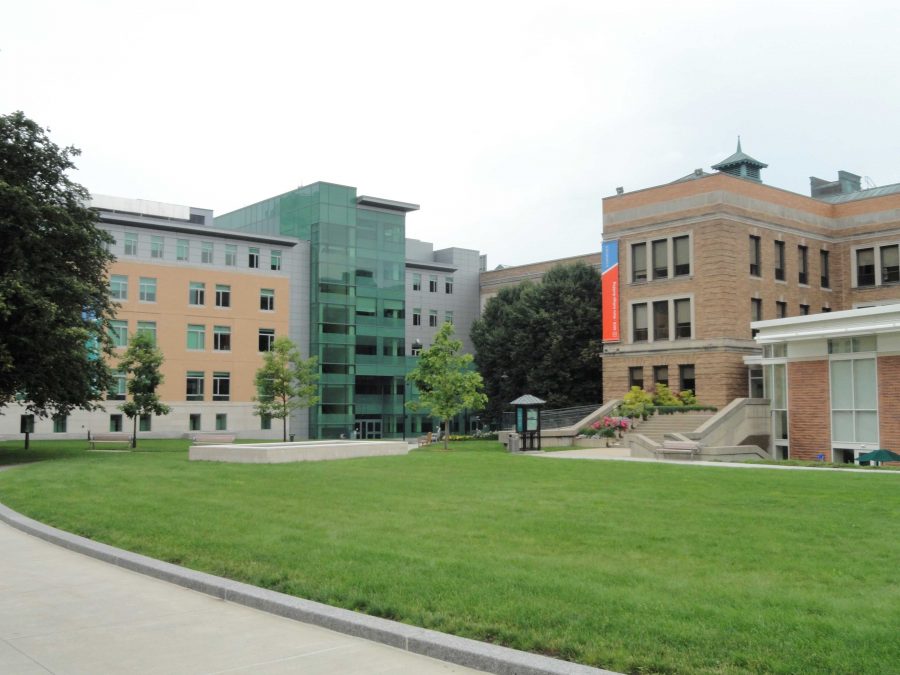By Lindsey Stokes
Staff Writer

“The threat of the Islamic state is one of the most serious international challenges that we face today,” Warburg Professor of International Relations William Bellamy began at “State of Terror: Update on the Islamic State” last Wednesday.
The panel discussion, which featured Bellamy, Professor Ben Cole, and Professor Mariam Raquib examined the regional dynamics, idealogical underpinnings, and foreign involvement that lead to the emergence of the Islamic State, better known as ISIS, as well as the current response and future outlook of the region.
Professor of Political Science Ben Cole began with a situation report and a quick background of the region.
Cole reported that though directly controlled ISIS territory has decreased over the past months, an example is the retaking of the Iraqi city of Tirkit by Iraqi soldiers and Shiite militias, ISIS influence continues to increase. As a result, massive refugee populations continue to swell and flood over the borders of Syria and Northern Iraq into neighboring Jordan, Lebanon, Turkey and Iran.
In addition to the increase of conflict severity over the past months. Cole also reported an increase in recruitment tactics not only in the region, but also in Western Europe, the Arab Spring countries of North Africa, including Tunisia and Libya, as well as the U.S.. “Young men in particular are being pulled by ISIS recruiters then radicalized and drawn into the conflict,” Cole said.
“Perhaps most significantly we’ve seen a growth in the number of atrocities by Islamic State,” said Cole, “They’ve extended their repertoire to include videos of mass killings… increasingly large mass killings where hundreds are killed at a time, the reinstitution of slavery, and the destruction of priceless antiquities.”
Professor of International Relations Mariam Raqib continued with a look into ISIS ideology. According to Raqib, the Islamic State movement is the product of political, social and economic instabilities in the region, as well as long-term foreign occupation and military intervention. ISIS preys upon the perceived shared identity of the Islamic community using the false claim of reestablishing a bygone era, the 7 Century.
“The idea of this Islamic State is based upon this time period that does not exist,” said Raqib. “It is fixed in the imagination of Muslims but at the same time has evolved… This idea of Islamic State leaders, this puritanical representation of Islam, does not really represent Islam.”
According to Raqib, Islamic State is exclusive in that it discards certain denominations of Islam including Shi’a. “There is no living example of this society,” said Raqib. “It exists solely in the imagination of [Islamic State] leaders.”
A possible draw to the group is the constant talk of social and political justice, which according to Raqib attracts disenfranchised populations. ISIS provides an alternative to the current, ineffective system of government.
“There is room for this movement to do well in weak states,” said Raqib. “If ISIS provides basic services the population of the region will overlook its brutalities.”
Bellamy spoke about U.S. involvement and current U.S. solutions to ISIS. Bellamy outlined four lines of effort: Military occupation, capping the influx of foreign fighters, organizing an international coalition that shares goals, and addressing the immense humanitarian tragedy in the region.
Military occupations are designed to degrade and eventually defeat the Islamic State.
“This has consisted largely of airstrikes by the U.S. and its coalition partners, as well as train and assist local forces so that there is a ground component,” said Bellamy. “The military shorthand for this has been train, advise, assist.”
The second effort, stopping the flow of foreign fighters, involves delegitimizing the Islamic State, making it seem less attractive. This is a difficult process says Bellamy as Islamic State has made great use of social media as a recruitment tool.
The third and fourth efforts, organizing an International coalition, and addressing the humanitarian crisis, require shared goals, and a coordination of NGOs and government agencies alike. On this humanitarian crisis last year alone the U.S. spent $1 billion.
“Some in the United States argue that there needs to be an even larger U.S. military role that would entail ground troops,” said Bellamy. “President Obama in my opinion has wisely avoided boots on the ground. This cannot be resolved with a few hard-knocks by the U.S. army, Iraqis and others need to be the main force of the effort.”
According to Bellamy the extreme exclusivity of ISIS ideology burn itself up from excess of zeal but the U.S. still needs to remain diligent and attempt to speed-up this demise.
“There is a certain desire to fix things quickly,” said Bellamy. “Well… to be continued.”


















